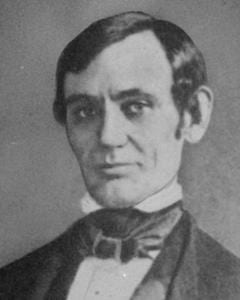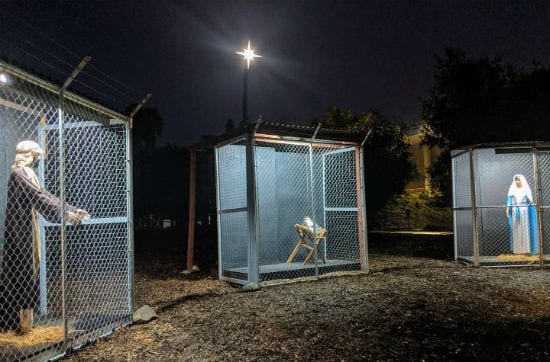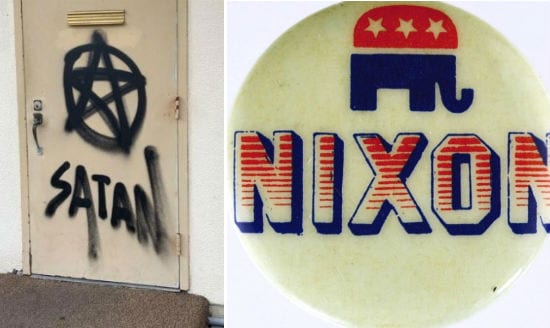Harper's, James Pinkerton and Slate's Fred Kaplan all noted the disturbing historical precedent that President Bush cited in his speech in the Philippines.
From Harper's "Weekly Review":
President George W. Bush traveled to Asia and gave a speech in Manila comparing Iraq to the Philippines, a former U.S. colony that was "liberated" from Spain in 1898 and occupied for 48 years. Bush said that the Philippines, which he called "the oldest democracy in Asia," should be seen as the model for a new democratic Iraq, and then quickly left the country because of security concerns. …
From Pinkerton:
… it's worrisome to see Bush drawing parallels between the United States in the Philippines and the United States in Iraq, because if he's right, we've got hell coming and so do the Iraqis.
A little history: The Philippines rose up in rebellion against their Spanish overlords in 1896. Coincidentally, the Spanish-American War broke out two years later. When the fighting ended, the United States seized the opportunity to seize the Philippines.
But Filipinos did not want to see the American flag flying above Manila any more than they wanted the Spanish flag over their heads. So the rebellion continued, only now the Americans were the heavies — the imperial enforcers. As is so often the case, America's "asymmetrical" war against guerrillas was much more costly than the earlier "symmetrical" war against Spain. In fighting the Spanish, just 385 Americans died, but in the next five years of battling the insurrectos, a total of 4,234 Americans died. Oh, and by the way, 200,000 Filipinos were killed, too, from 1898 to 1903.
Bush mentioned none of this horrible history in his speech on Saturday. Indeed, he heaped praise on Manuel Quezon, an advocate of Filipino democracy in the middle of the last century. But he didn't recall Quezon's most famous quote: "I prefer a government run like hell by Filipinos to a government run like heaven by Americans."
And Kaplan:
The comparison between Iraq and the Philippines … implies such a dismal forecast for America's occupation in Iraq over the next several years (for that matter, the next few decades) …
… The American military [in 1898] invaded the Philippines and took over the capital, Manila, in fairly short order. Then, as now, the troubles began. …
Over the next three and a half years, until July 1902, when the Filipino guerrillas were finally subdued, the U.S. Army lost 4,234 soldiers. Another 2,818 were wounded. (By the Army's own estimate, 69,000 Filipino combatants were killed, along with nearly 200,000 civilians.) The American war effort was marked by much burning, pillaging and torturing, and the commanders finally achieved victory through a strategy of isolating the guerrillas. They did this by forcing the civilian population out of towns and into "protected zones;" able-bodied men found outside the zones without a pass were arrested or shot.
Even so, sporadic uprisings continued long after 1902. The American military occupation was forced to remain for 44 years. …
Kaplan seems to think — or hope — that Bush would not have made this comparison "if he'd understood its full implications." That's a safe bet — Bush seems not to understand the full implications of much of anything. But I rather doubt that the president himself wrote this speech. The ideas seem to come from the minds of his advisers, people like Dick Cheney and Karl Rove, who probably knew precisely the implications of this wretched historical comparison.
The president who spearheaded "Operation Filipino Freedom" was William McKinley — Karl Rove's favorite president. Rove is an avid autodidactic scholar of the McKinley presidency, so it's most likely he was aware of not only the military details of the American subjugation/"liberation" of the Philippines, but also of the explicitly religious motives that McKinley cited for this imperial conquest.
Kaplan cites this from McKinley:
I went down on my knees and prayed Almighty God for light and guidance more than one night. And one night late it came to me this way … that there was nothing left for us to do but to take them all and to educate the Filipinos and uplift them and civilize and Christianize them.
Kaplan also notes that it was this quasi-religious impetus of a civilizing crusade in the Philippines that inspired Rudyard Kipling's poem "The White Man's Burden."
It's not to much of a stretch, then, to allow Kipling to illuminate how Karl Rove — and therefore George W. Bush — perceives the American responsibility in Iraq:
Take up the White Man's burden–
Send forth the best ye breed–
Go bind your sons to exile
To serve your captives' need;
To wait in heavy harness,
On fluttered folk and wild–
Your new-caught, sullen peoples,
Half-devil and half-child. …












